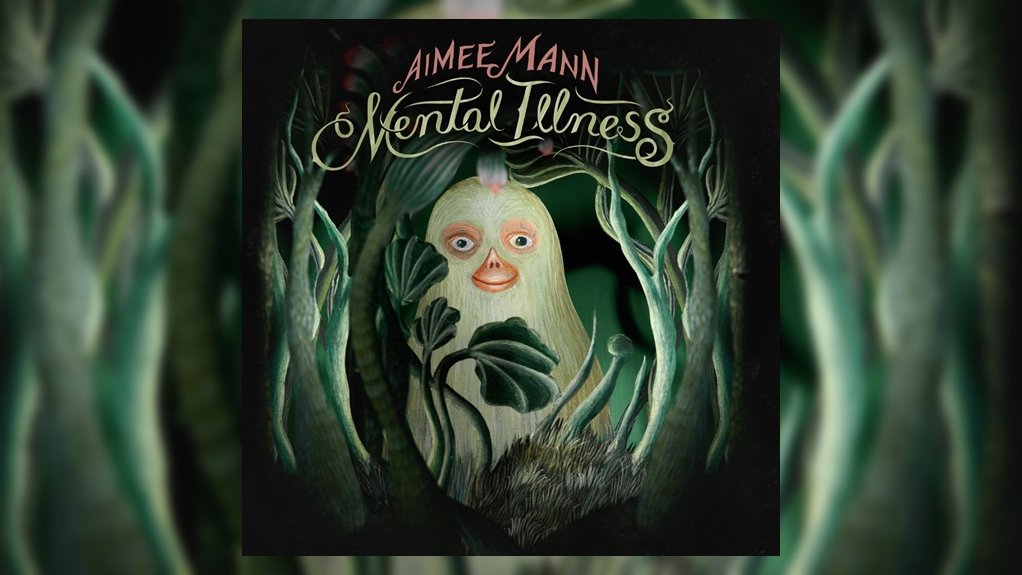Aimee Mann
Mental Illness
SuperEgo
Listen Below
A convincing case can be made that the record industry started its swift, precipitous descent in the late ‘90s, as corporate mega-mergers and the Napster-fueled genesis of online streaming took hold. In the wake of both phenomena, sustained artist development took a backseat to instant gratification, among both record label execs hungry for immediate hit singles to pad their conglomerates’ ever-volatile bottom lines and listeners whose paralyzed attention spans prevented them from imbibing more than a few mp3 files at a time.
During this period of flux and intensified commodification for the music business, one artist stood out among her peers for having the foresight and courage to pivot her career in order to salvage her songs and preserve her artistic integrity. Following her stint as the chief songwriter, lead vocalist, and bassist for ‘Til Tuesday in the ‘80s, Aimee Mann recorded two excellent and acclaimed solo albums for Geffen Records: 1993’s Whatever and 1995’s I’m with Stupid. But despite the accolades and modest sales, Interscope Records—the label that Geffen had been folded into via the Universal-Polygram consolidation in late 1998—ultimately decided not to release her third album, which prompted Mann to go it alone rather than shop for a new label.
“Can I pretend having a record deal is the greatest thing on earth that will lead, automatically, to success, and people will love you for who you are?,” a deflated yet resilient Mann asked rhetorically during a New York Times Magazine interview in July 1998. “In no way can I do that. Knowing the enormous pitfalls of the music industry, I can't really pretend that anybody at a record company really believes in me or art at all. It's not their job to believe in art and me. I can't assume that anymore. And I really used to.''
Fortunately, Mann believed in herself and her music, harnessing her pride to launch her own label, SuperEgo Records, through which she finally released that third album, Bachelor No. 2, in the spring of 2000. Aided in part by her prominent role spearheading the soundtrack to Paul Thomas Anderson’s 1999 film Magnolia, the album sold well, and Mann’s calculated gamble on independence paid off. Since then, Mann has cultivated one of the most consistently rewarding discographies of the past 15 years, comprised of six studio LPs and one live album, all released through SuperEgo.
Watch the Official Videos:
Arriving in stores this week, Mann’s ninth studio album, Mental Illness, is arguably her finest, most enveloping work since Bachelor No. 2. Quite a feat, considering the top-notch caliber of previous albums such as Lost in Space (2002), The Forgotten Arm (2005), and @#%&*! Smilers (2008). A streamlined, acoustic guitar-driven affair with a few piano-blessed reveries along the way, the Paul Bryan produced album features beautiful vocal nuances and string-laden sonic flourishes throughout, many of which fully blossom upon repeated listens.
Whether inspired by personal experience or her penchant for compelling, narrative fiction, Mann has always been an interpreter and champion of the fringe and fragile figures among us. Hence why her music was the perfect aural accompaniment for Magnolia’s parallel tales of deep-seated dysfunction. And here on Mental Illness, she demonstrates a markedly profound and incisive empathy for the adversities of the marginalized and misunderstood, as best evidenced on “Lies of Summer” and “Philly Sinks.” “People who are crazier—present company included—are just bigger puzzles to solve,” Mann explains in the album’s video trailer. “And I like a good puzzle.”
The album kicks off with the curiously titled lead single “Goose Snow Cone,” an exploration of loneliness that was inspired by Mann seeing pictures of her familiar feline friend “Goose” while on tour and homesick in Ireland. Next up is the sobering “Stuck in the Past,” an orchestral lament of immobility that explores the cyclical nature of insanity, as defined by repeating the same mistakes over and over again. The same theme reappears on the Ted Leo supported “Simple Fix,” with the duo delving into passivity and resignation in relationships, powerful forces that prevent many of us from acting upon the most obvious solution to conquering our unhappiness, even if we recognize the writing on the wall.
Other standouts include the heartbreaking “You Never Loved Me,” a somber, starkly self-aware ode to unrequited love, replete with ‘70s era, AOR-style backing vocals. The plaintive nod to self-deception “Good For Me” finds Mann acutely reflecting, “I'll pretend I'm surprised by the lies that I'm telling to myself / That you're good for me” over a sparse yet absorbing piano-steered arrangement. The multi-layered “Patient Zero”—arguably the album’s supreme highlight—explores the emptiness of the Hollywood dream, all too often doomed by the deceptive allure of “the lights of the canyon.”
With her signature eloquence and grace, Mann once again proves herself one of the most adept songwriters when it comes to externalizing the psychological and emotional trauma—indeed, the mental illness—that so many of us hold deep inside, for fear of exposing our vulnerabilities. And while the truth can be hard to accept, it’s reassuring to know that someone out there cares enough to listen and honor these stories through song.
Notable Tracks: “Good For Me” | “Goose Snow Cone” | “Patient Zero” | “You Never Loved Me”
LISTEN:


